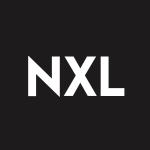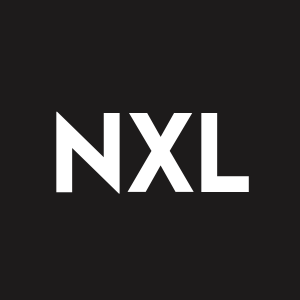Welcome to our dedicated page for Nexalin Tech news (Ticker: NXL), a resource for investors and traders seeking the latest updates and insights on Nexalin Tech stock.
Nexalin Technology (NXL) delivers non-invasive neurostimulation therapies for mental health and neurological conditions through its patented transcranial electrical stimulation (TES) and deep intracranial frequency stimulation (DIFS) technologies. This page provides investors and healthcare professionals with centralized access to official updates on clinical trials, regulatory milestones, and strategic initiatives.
Discover timely announcements including FDA clearances, partnerships with medical institutions, and advancements in AI-integrated treatment platforms. All content is sourced directly from company releases to ensure accuracy, with a focus on developments impacting mental health innovation and neurostimulation markets.
Key updates cover device efficacy studies, intellectual property expansions, and revenue model evolution through licensing agreements. Bookmark this page to monitor Nexalin's progress in providing drug-free alternatives for anxiety, depression, and neurological disorders while maintaining compliance with financial disclosure standards.
Nexalin Technology (Nasdaq: NXL, NXLIW) announced it will participate in the 2025 Maxim Growth Summit on October 22, 2025 at The Hard Rock Hotel NYC.
Management will meet attendees to discuss Nexalin’s proprietary Deep Intracranial Frequency Stimulation (DIFS™), described as a non-invasive, drug-free, clinically proven neurostimulation therapy the company says has potential to scale worldwide.
The announcement highlights investor and public engagement opportunities at the conference and provides registration details for the Maxim Growth Summit.
Nexalin Technology (Nasdaq: NXL) reported peer-reviewed clinical results (Radiology, Oct 8, 2025) showing its Gen-2 SYNC 40-Hz, 15 mA DIFS neurostimulation device produced statistically significant cognitive gains and measurable brain-connectivity changes in mild Alzheimer’s disease.
Key findings: significant MMSE and MoCA score improvements versus sham (P = .001 and .03), increased hippocampal-cortical and network functional connectivity on resting-state fMRI, a connectivity–naming-test correlation (r = 0.65, FDR-adjusted P = .008), and no reported adverse events. Device has regulatory approvals for other indications in China, Brazil, and Oman.
Nexalin Technology (NASDAQ: NXL) has secured U.S. Design Patent No. D1,092,758 for its HALO™ Clarity neuromodulation device, providing 15 years of design protection. The device utilizes the company's proprietary Deep Intracranial Frequency Stimulation (DIFS™) technology to deliver non-invasive, drug-free treatment for mental health and neurological conditions.
The HALO™ Clarity system enables at-home, professionally supervised treatment with remote monitoring capabilities. The company is conducting multiple clinical studies across various indications including anxiety, insomnia, PTSD, and mild traumatic brain injury. The FDA has already provided consensus on pivotal trial designs for anxiety and insomnia indications.
The DIFS™ platform has demonstrated safety and efficacy signals in over two dozen trials worldwide. Nexalin has completed usability, safety, and design verification testing and is scaling manufacturing for broader clinical deployment.
Nexalin Technology (NASDAQ: NXL) will host a live investor webinar on September 9, 2025, at 4:15 p.m. ET. CEO Mark White will present the company's Deep Intracranial Frequency Stimulation (DIFS™) technology and its applications in mental healthcare.
The presentation will highlight clinical collaborations with institutions like UC San Diego, updates on the Gen-3 HALO™ Clarity headset, and the Virtual Clinic model for at-home treatment. Operating in a $537 billion mental health market, Nexalin's strategy includes international regulatory approvals, U.S. market expansion, and AI-driven patient monitoring.
Nexalin Technology (NASDAQ: NXL), a leader in Deep Intracranial Frequency Stimulation (DIFS™), has appointed Justin Van Fleet, CPA as Chief Financial Officer effective August 1, 2025. Van Fleet brings over 20 years of experience in public accounting and assurance services, most recently as Partner at Marcum LLP.
The appointment comes at a crucial time as Nexalin advances its Generation 2 and Generation 3 devices through FDA review. These non-invasive neurostimulation systems are designed to treat anxiety, depression, and other mental health conditions without drugs or surgery. Van Fleet will oversee the company's financial strategy, planning, and reporting functions during this critical growth phase.
Nexalin Technology (Nasdaq: NXL) will host a live investor webinar on June 3, 2025, at 4:15 p.m. ET. CEO Mark White will present the company's proprietary Deep Intracranial Frequency Stimulation (DIFS™) technology for mental healthcare and provide updates on their Gen-3 HALO™ Clarity headset and Virtual Clinic model for at-home treatment. The presentation will highlight clinical collaborations with institutions like UC San Diego, international regulatory approvals, and U.S. expansion plans in the $537 billion mental health market. The webinar will include discussion of Nexalin's patented technology, AI-driven patient monitoring, and global expansion strategy, followed by a Q&A session.
Nexalin Technology (NASDAQ: NXL) has reconstituted its Scientific Advisory Board (SAB) with three leading experts to advance its Alzheimer's disease program. The company appointed Dr. Mingxiong Huang, Dr. David Owens, and Dr. Abe Scheer to guide its clinical development of Deep Intracranial Frequency Stimulation (DIFS™) technology.
Nexalin's Gen-2 SYNC and Gen-3 Halo™ headset delivers DIFS™, a proprietary waveform technology that can penetrate deep brain structures. Recent data suggests DIFS™ may promote neuroplasticity and functional recovery in memory and executive function regions. The company plans to initiate new Alzheimer's-focused clinical studies in Q3 2025, incorporating cognitive testing, imaging biomarkers, and MEG-guided metrics.
Nexalin Technology (NASDAQ: NXL), a company specializing in Deep Intracranial Frequency Stimulation (DIFS™) technology, has successfully closed its previously announced underwritten public offering. The company issued 3,850,000 shares of common stock at $1.30 per share, raising approximately $5.0 million in gross proceeds before deducting underwriting costs and other expenses.
The offering was conducted through Maxim Group LLC as the sole book-running manager, under an effective shelf registration statement on Form S-3. The securities were offered through a prospectus and prospectus supplement, with documentation available on the SEC's website.
Nexalin Technology (NASDAQ: NXL), specializing in Deep Intracranial Frequency Stimulation (DIFS™), has announced a $5.0 million public offering of common stock. The company is offering 3,850,000 shares at $1.30 per share, with an additional 45-day option for underwriters to purchase up to 577,500 shares.
The offering, managed by Maxim Group LLC as the sole book-runner, is expected to close around May 6, 2025. Nexalin plans to use the proceeds for working capital and general corporate purposes, including sales and marketing activities, product development, and capital expenditures. The offering is made through a shelf registration statement filed with the SEC on April 23, 2025, and declared effective on April 29, 2025.
Nexalin Technology (NASDAQ: NXL) has announced plans to submit a Q-Submission to the FDA for its Gen-2 SYNC system, marking a crucial step in its regulatory pathway. The Q-Sub aims to facilitate discussions with the FDA regarding clinical trial design for treating Alzheimer's disease, dementia, and mild cognitive impairment (MCI).
This decision follows encouraging internal data and preliminary FDA feedback. The Gen-2 SYNC system features technical improvements, including a redesigned enclosure and integration of Nexalin's proprietary 15 milliamp advanced waveform. The company is also undertaking a rebranding initiative to differentiate this system from previous versions.


